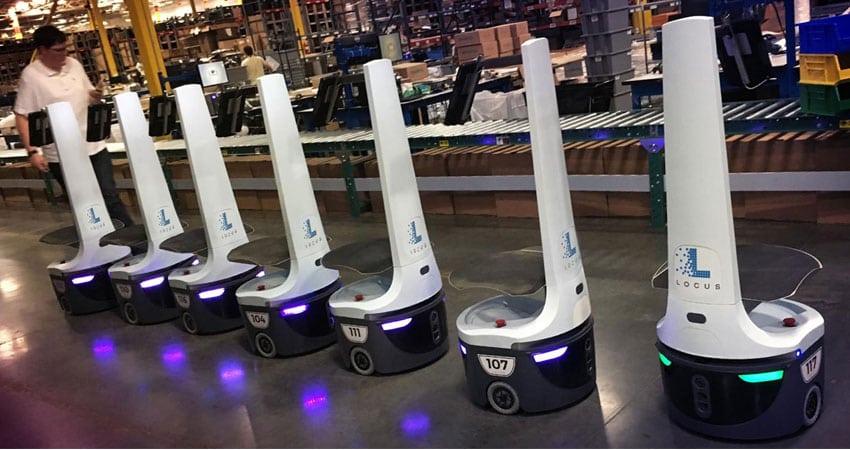Wilmington, MA-based Locus Robotics, spun out of 3PL Quiet Logistics in 2015, has raised $26 million in Series C funding, increasing its total to $66 million. The round was led by the venture arm of mobile scanning and printing technology firm Zebra Technologies and Scale Venture Partners.
Proceeds will be used to increase production of Locus’s warehouse fulfillment robotics, and to expand its sales and marketing efforts domestically and internationally.
In addition to its financial commitment, Zebra is integrating its systems with Locus Robotics. For instance, Locus recently added an accessory power port to its autonomous robot, which features a Zebra printer, and a Zebra wireless handheld scanner is integrated with Locus’s new putaway functionality.
“The continued, rapid growth of the warehouse industry and a tight labor market have placed tremendous pressure on warehouse operators to find a scalable, cost-effective way to meet increasing productivity and efficiency demands,” said Rick Faulk, CEO of Locus Robotics in a statement. “We have seen a massive uptick in demand for the flexible automation incorporated into Locus’s multi-bot solution, which is uniquely suited to address these challenges.”
Faulk told the Wall Street Journal that Locus will begin operations in Europe by mid-year, moving on from there to Asia as it pursues international opportunities.
Major customers of Locus Robotics include top 3PLS such as DHL – which began with a 2017 pilot program – Geodis, Port Logistics, Verst Logistics and Radial. Locus claims they are seeing a doubling or tripling of their fulfillment productivity with near-100% accuracy, while reducing operating expenses by 30% or more.
Locus Robotics began deploying its autonomous robots for fulfillment center operations in 2016, with retailer Outdoor Voices in nearby Devens, MA as an early customer. Locus founders Fault and Bruce Welty, CEO of Quiet Logistics, had closely observed Kiva robots in action at a Gilt facility in Louisville, KY. They sought to create a more flexible solution that could be deployed faster without a facility retrofit, while utilizing existing storage space for its bots.

